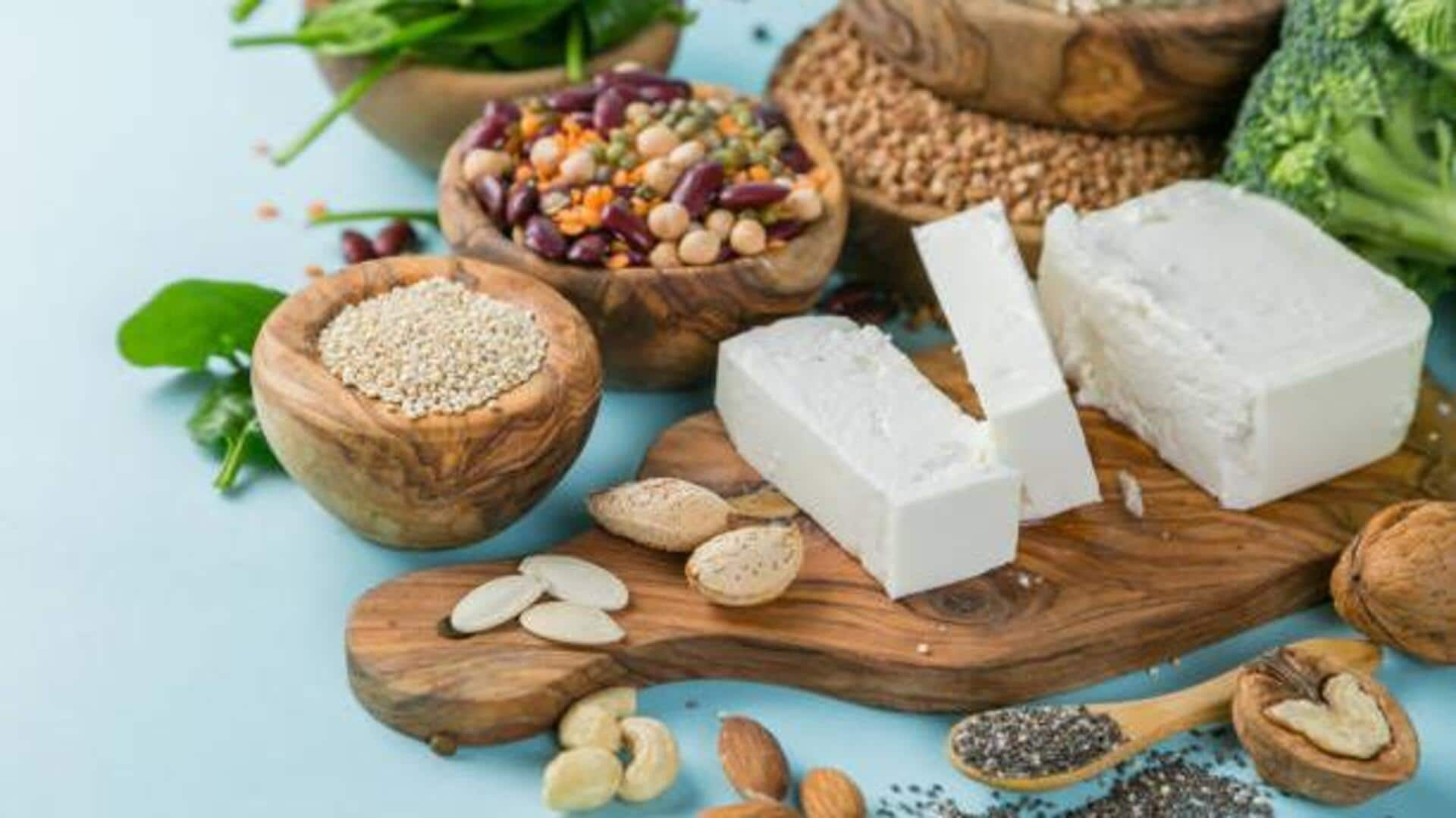
Plant-based proteins: Myth v/s facts
What's the story
As more people venture into vegetarian and vegan diets, plant-based proteins are becoming increasingly popular. However, many myths still remain regarding their quality and nutritional value. This article attempts to debunk these myths by giving you the real deal on plant-based protein sources. Knowing the truth behind these myths, you can make informed dietary choices that fit your health goals and ethical beliefs.
Protein completeness
Myth: Plant proteins are incomplete
A common myth is that plant proteins are incomplete as they don't contain essential amino acids. While certain plants may not have all nine essential amino acids in a single serving, combining various plants can deliver a complete protein profile. For instance, rice and beans together provide all essential amino acids required for a balanced diet.
Digestibility factor
Myth: Plant proteins are less digestible
Another misconception is that plant proteins are harder to digest as compared to animal proteins. While it is true that some plants contain anti-nutrients like phytic acid, which can hinder absorption, cooking methods like soaking or fermenting can reduce them significantly. Many plant-based foods are highly digestible when prepared correctly.
Nutrient density
Myth: Plant proteins lack nutrients
A common misconception is that plant proteins are inadequate in delivering nutrients as compared to their animal counterparts. However, many plant-based foods are rich in the essential vitamins, minerals, fiber, and antioxidants. In particular, lentils, quinoa, and chickpeas are not just protein-rich, but also provide a full range of nutrients. These include iron, zinc, and B vitamins, which make them irreplaceable for a healthy diet.
Cost efficiency
Myth: Plant proteins are expensive
There's a perception that sticking to a diet loaded with plant-based proteins can be expensive. However, there are plenty of affordable options, including beans, lentils, tofu, and whole grains. These foods are often available for less than $5 per pound, making them accessible for most budgets. They offer high-quality protein without burning a hole in the pocket.
Athletic performance
Myth: Athletes can't rely on plant proteins
Some argue athletes can't perform optimally on a plant-based diet due to lack of protein intake or quality. However, many athletes flourish on vegetarian or vegan diets by planning their meals carefully. They ensure they get enough calories from the variety of sources legumes, nuts, seeds, grains, vegetables, and fruits. This proves athletic success doesn't only depend upon eating animal products. It rather depends on the overall nutrition strategy employed by the athlete themselves.